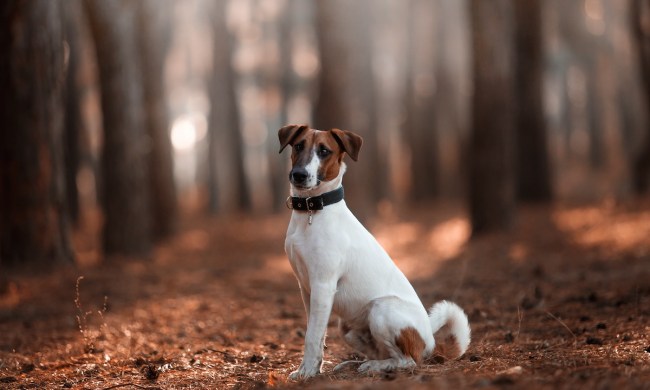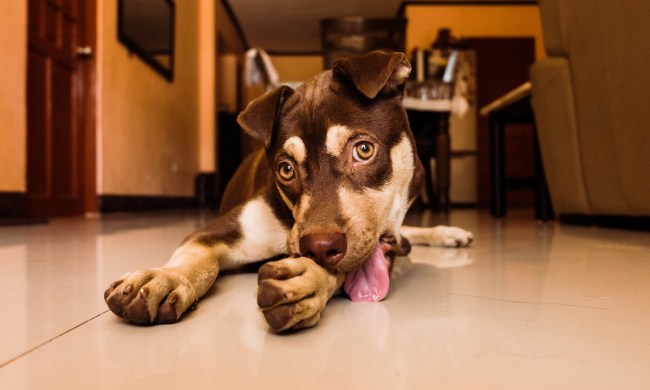Just like people, every dog has their own unique approach when it comes to food. Some of our canine companions are chowhounds, but others are picky eaters. In addition to making mealtime a chore, dainty eaters aren’t actually doing themselves any favors. As long as they aren’t obese, having a dog with a hearty appetite is a good thing. Because dogs gain essential nutrients from their food, those who eat a balanced diet have healthier immune systems than underweight dogs.
But what happens when your pooch is a little too food motivated? In some cases, dogs will chew on your furniture and gnaw on your shoes. Some pups might even scarf down the contents of your garbage can. Can dogs eat garbage safely? Here’s what you should know.
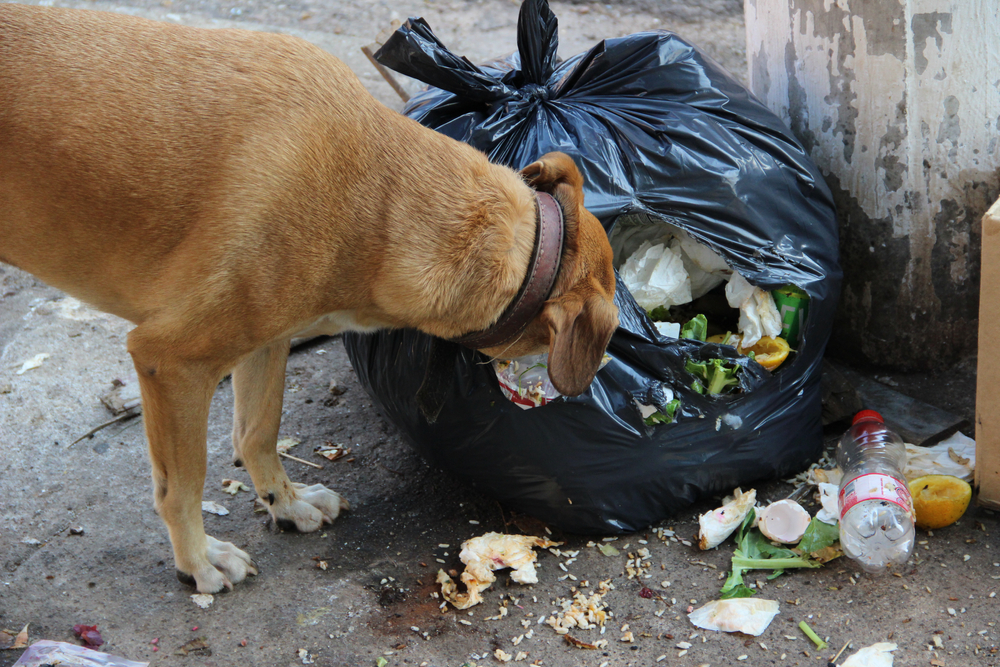
Why does my dog eat from the garbage?
You’re not alone if the thought of eating garbage makes you cringe. But for dogs, our trash might as well be an all-you-can-eat buffet. From leftover food to plastic wrappers, our trash cans hold a veritable smorgasbord as far as our pups are concerned. Still, this behavior often leaves us scratching our heads. After all, why would a dog eat from the garbage when they have a fresh serving of food and water at their disposal? According to the experts, there’s a perfectly reasonable explanation: Trash smells appetizing to dogs.
Even if nothing in your garbage is edible, small traces of food remain on wrappers. Even the smallest of crumbs can produce enough of a scent for your dog’s keen nose to detect. Additionally, our dogs’ ancestors, gray wolves, frequently scavenge for food, an instinctive behavior that’s genetically hardwired in our canine companions. This is especially true of former strays that may still associate your trash can with their only access to food.
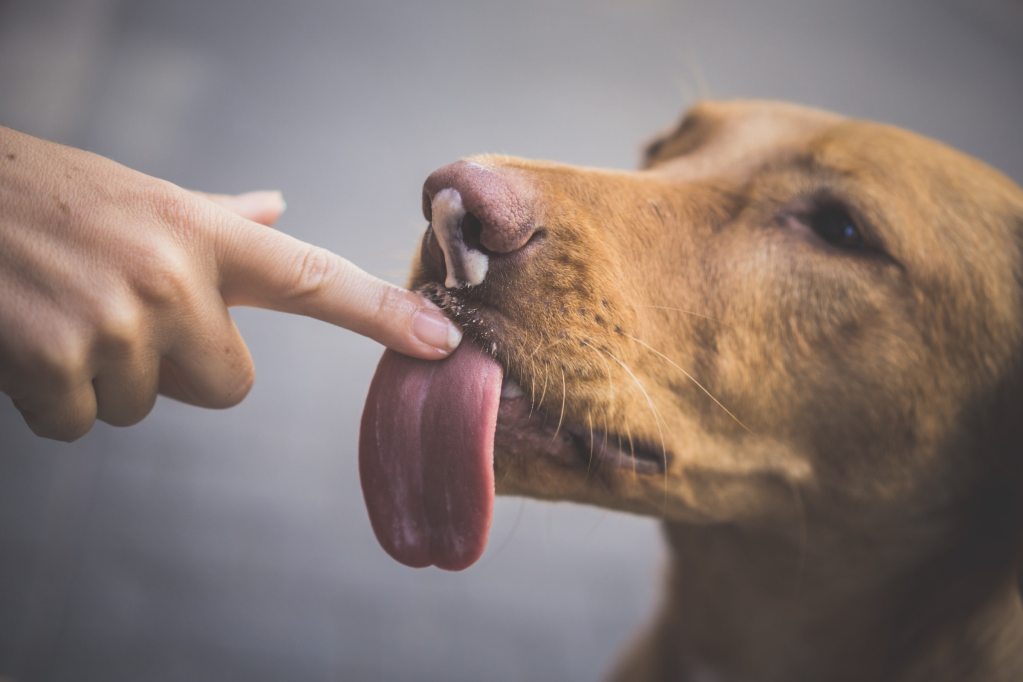
What dangers does it pose when my dog eats garbage?
You wouldn’t eat expired or rancid food, and neither should your dog. While some dogs merely retrieve pieces of cardboard or plastic from the trash to chew on, others ingest their stolen trash treasures. Unfortunately, this can lead to an illness called garbage toxicosis, sometimes known as garbage gut. Symptoms range from mild nausea and flatulence to severe vomiting, diarrhea, and even seizures.
Not only is your dog at risk of ingesting bacteria from spoiled food, but lingering residue found on empty bottles of household cleaning items can make your dog violently ill. Empty Styrofoam or plastic takeout containers smell delicious to your pup, and while they aren’t toxic on their own, eating foreign items is one of the leading causes of gastrointestinal obstructions in dogs.
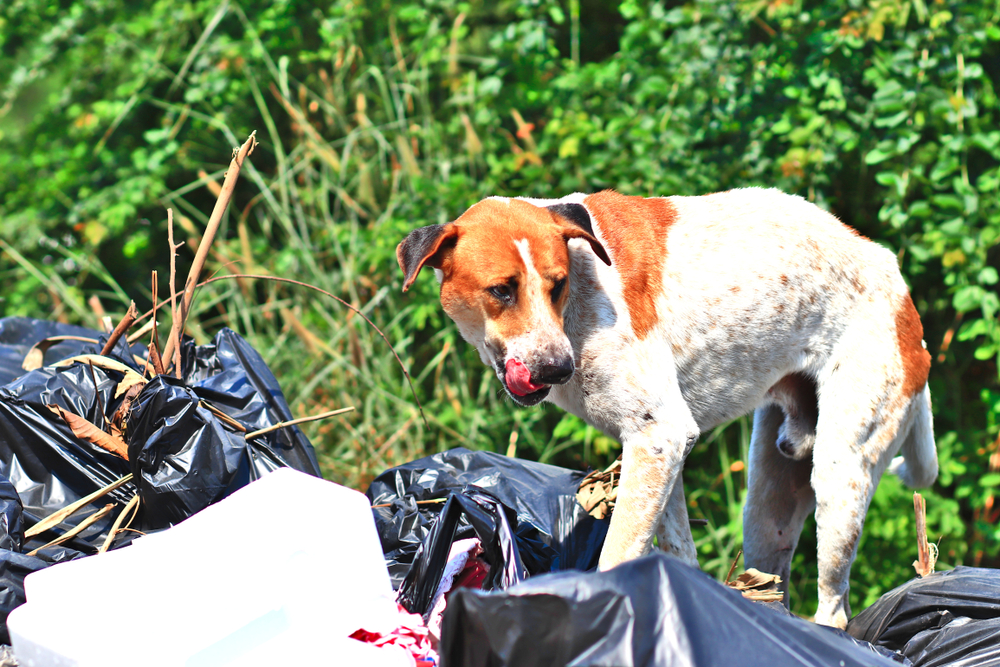
How to get your dog to stop eating garbage
Have you ever wondered, “Can dogs eat garbage?” The answer to that question is a resolute, “No way.” But preventing your pooch from raiding the trash can while you’re away from home often presents a challenge for pet parents. Here are a few helpful tips to keep your dog out of the garbage.
Provide your pup with distractions
Some dogs are prone to chewing everything in sight, such as furniture, shoes, and even your trash can. Make sure your dog stays occupied while you’re at work by providing him with more attractive alternatives like puzzle toys or vet-approved dog chew toys.
Keep your trash can out of reach
Even if you give your dog a healthy alternative to trash can treats, habits can be hard to break. Try storing your garbage can under the sink or inside a cabinet, or relocate the can to your garage when you’re not at home to monitor your fur baby’s mischievous garbage chewing. (Pro tip: If your dog is especially crafty, he may figure out how to open up cabinet doors. Try installing a childproof lock to make sure your precocious pooch doesn’t nudge the cabinet open while you’re away.)
Lock your dog out of the kitchen
Don’t have anywhere to store your trash can? Not to worry: strategically placed baby gates will prevent your pup from leaving a mess of garbage all over your kitchen floor — and potentially making himself seriously ill in the process. “But wait,” you say, “My house has an open floor plan.” Try crate training your dog instead. Contrary to popular belief, crate training isn’t cruel. In fact, it can actually help dogs feel safer.
Make sure your pup is well trained
Because training your dog is also a bonding experience, spending the time and effort to train your pup is always a worthwhile experience. Even old dogs can learn new tricks as long as you’re diligent and consistent. And if all else fails, seeking the help of a professional trainer is always an option.
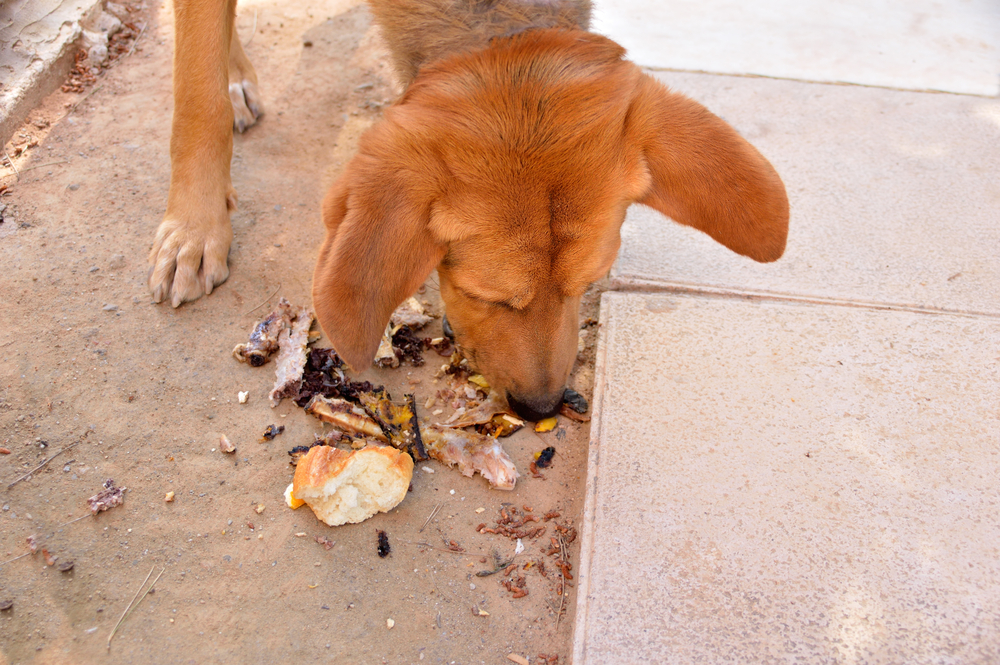
No matter how attractive your garbage can is to your pup, you should keep him away from trash at all costs. Pesticides, household cleaners, expired food, and known toxins like sugar-free gum and chocolate can make your dog seriously ill — or worse. Take your trash out frequently, keep your garbage can locked up if possible, and if nothing else works, try crating your dog when you leave your home. Your house will stay cleaner, and your dog will be much safer.

